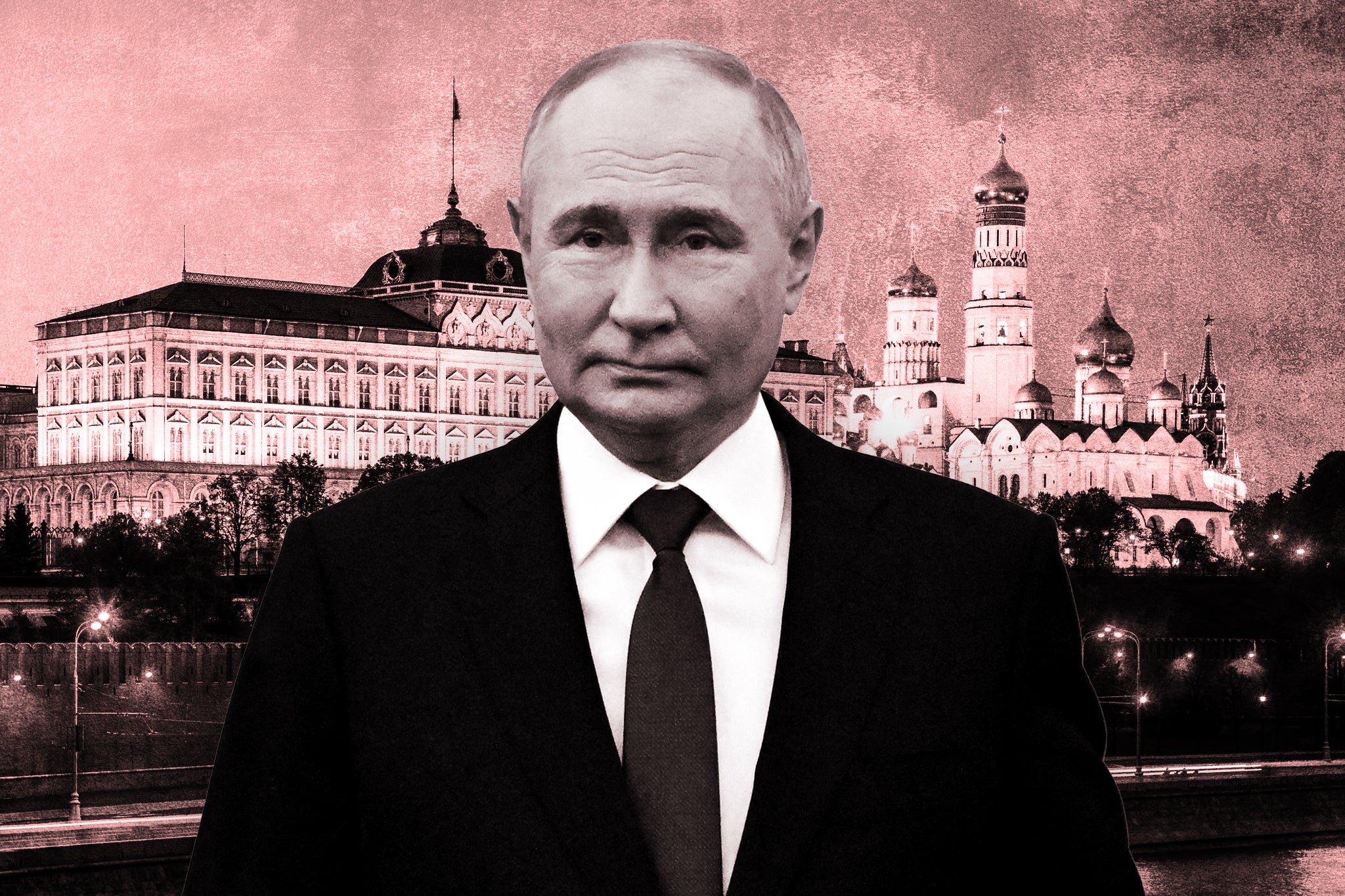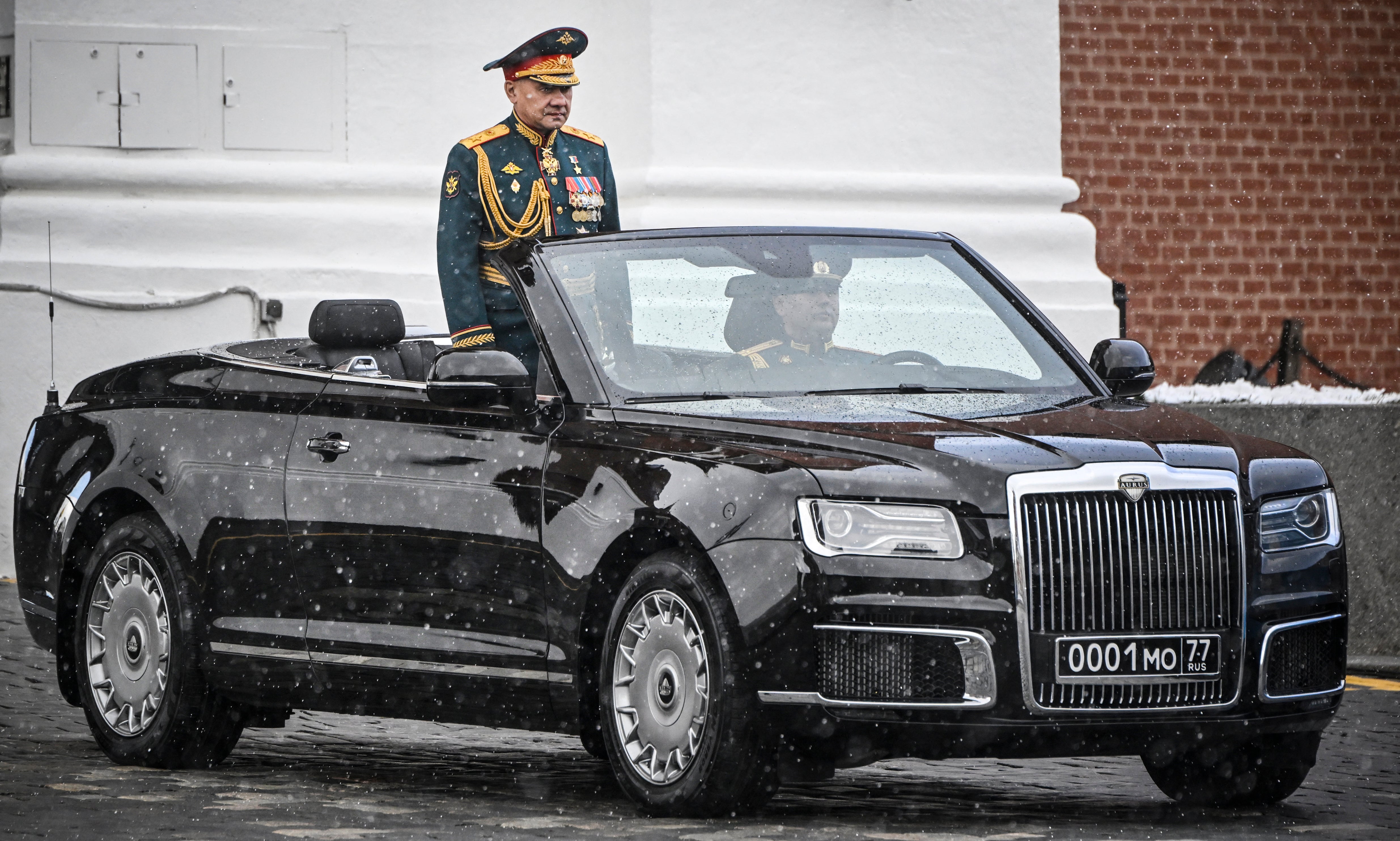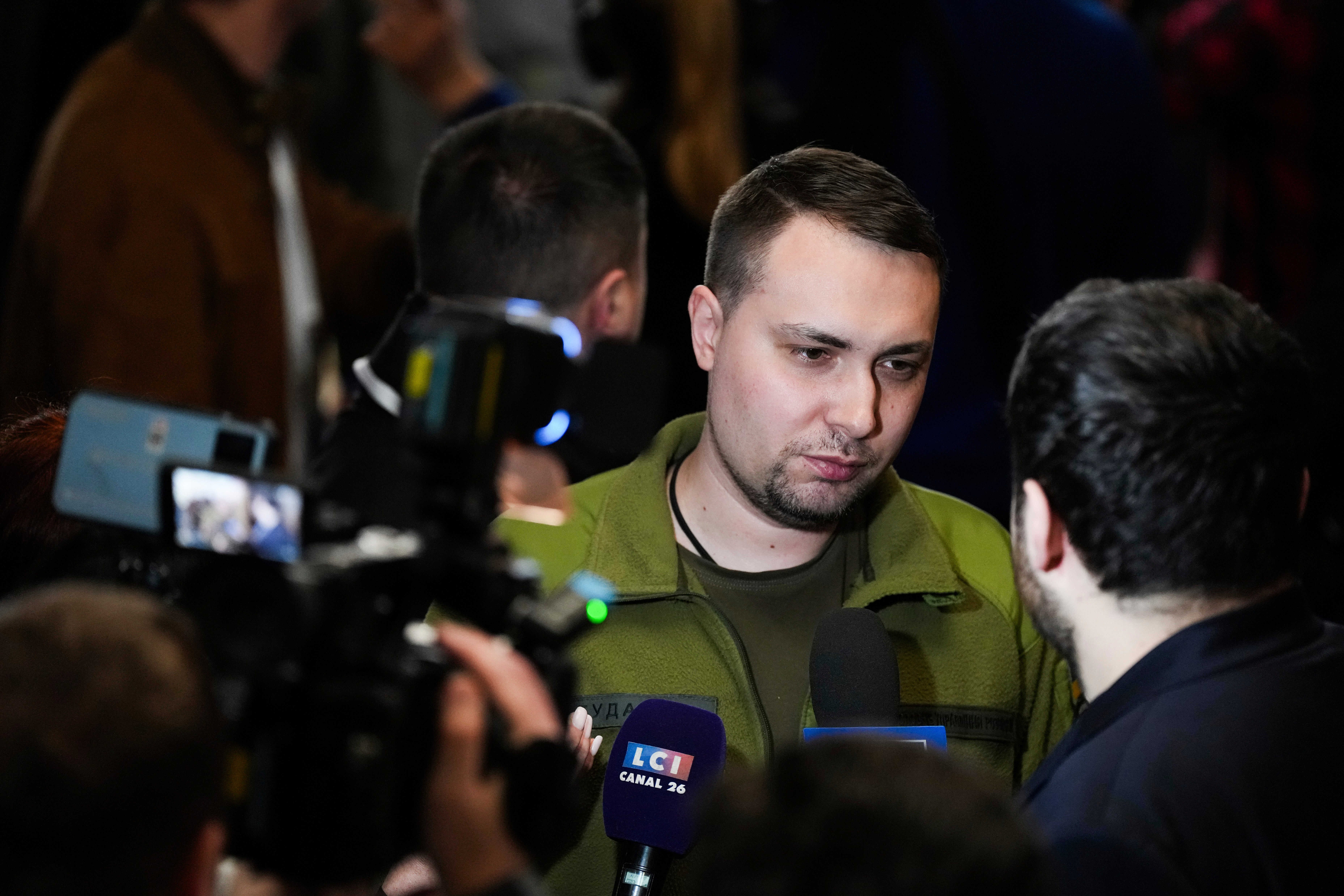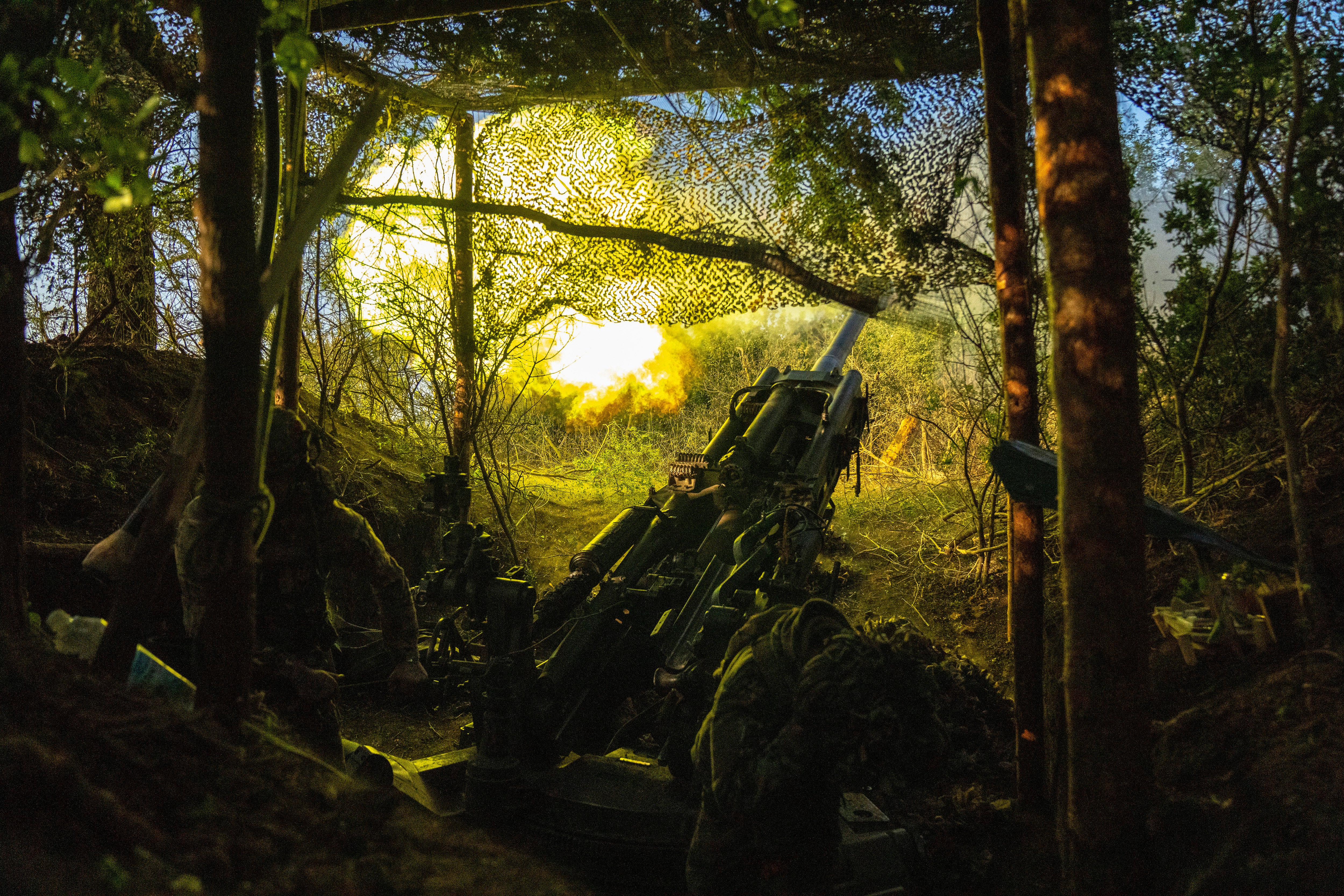Putin is playing a game of thrones with his inner circle. And one man is rising in the shadows
Sergei Borisovich Korolev, the first deputy director of the FSB, is said by European officials to have emerged a winner behind the scenes in the Russian president’s recent Kremlin reshuffle. Kim Sengupta reports


As a game of thrones in Russia’s security hierarchy unfolds in the Kremlin, with Vladimir Putin ringing the changes, the rise of one man is being watched with keen interest by Western intelligence agencies.
Sergei Borisovich Korolev, the first deputy director of the Federal Security Service (FSB), is said to have been given a key role as Moscow gets into battle order for the clandestine conflict underway against the West.
In a series of sudden moves this week, Sergei Shoigu was replaced as defence minister by the deputy prime minister, Andrei Belousov. Shoigu took over as secretary of the Security Council from Nikolai Patrushev, who was demoted to overseeing the country’s shipbuilding capabilities. Putin’s former bodyguard, Alexei Dyumin, the governor of the Tula region, failed to get the defence portfolio he had been tipped for, but became a senior aide to the president instead.
No official announcements have been made about the security and intelligence services. But, according to a number of European officials, Korolev, whose appointment to the FSB post was personally signed off by Putin, is among a group of senior intelligence officers tasked with taking operations forward.

This week, Anne Keast-Butler, the director of GCHQ, became the latest security official to warn of the Russian threat, using her first keynote speech to stress that the Kremlin is encouraging and directing hackers to target British and Western targets.
Korolev, whose brief covers counterterrorism and anti-separatism at the FSB, has played an important role in focusing on cyberwarfare. He also has experience of direct and violent action. The Ukrainian security service (SBU) claims that he may have been involved in an assassination plot against Volodymyr Zelensky. Two colonels in the close protection section of the Ukrainian government have been arrested after it was suspected that they were FSB agents and were trying to recruit members of the president’s bodyguard team to kidnap and kill the Ukrainian president.
Other planned killings by the hit squad allegedly included Kyrylo Budanov – the head of the GUR, Ukraine’s military intelligence service – and SBU chief Vasyl Malyuk. The SBU named three Russian FSB officers: Dmytro Perlin, in charge of recruiting spies in Ukraine; Oleksiy Kornev, who held secret meetings in a Baltic state with one of the colonels detained for being directly complicit in the plot; and Maksym Mishustin.
The assassination scheme was organised by the 9th Department of the Operational Directorate of the 5th Service, according to the SBU. Two of them men had served with Korolev, it has been claimed, when he was head of the 9th Directorate before a swift rise that has seen him awarded the military rank of a four-star general and placed him in prime position to succeed 75-year-old Alexander Botnikov as the director of the FSB.

A rival for the top job, Yevgeny Zinichev, who was also a deputy director of the FSB before becoming the minister for emergencies, died three years ago, aged 55, under mysterious circumstances – falling off a cliff in Norlisk in the far north of Russia. It was the first recorded case in post-Soviet Russia of an incumbent federal minister dying in an accident.
Zinichev’s death was a blow to the service. Condolences came, at his funeral, from Putin, the foreign minister Sergei Lavrov, and Shoigu. By a presidential decree, he was awarded the title of Hero of the Russian Federation. There were also condolences from Serbian president Aleksandar Vucic, Israel’s foreign minister Yair Lapid, and Armenian prime minister Nikol Pashinyan, reflecting Zinichev’s extensive contacts abroad.
Korolev, meanwhile, was becoming a major player in the hierarchy. He is accused by a number of Western states of being an active player in the Ukraine invasion, and has been the subject of sanctions imposed by the UK, EU, France, Belgium, Canada, Switzerland, Australia and New Zealand. He has been credited with carrying out intelligence reforms that have helped to shape the currently successful Russian operations in the war.
Korolev was a protege of Anatoly Serdyukov, who was defence minister before Shoigu. As a special adviser at the ministry, he oversaw the GRU, Russia’s military intelligence service, and is believed to have founded the Special Operations Forces and the Directorate of Special Operations in the service.

The GRU subsequently became one of the most aggressive of Russia’s intelligence agencies, carrying out operations such as the Skripal novichok poisoning in Salisbury, the attempted assassination of a Bulgarian arms dealer, and the orchestration of a coup in Montenegro.
Korolev has not always taken a hawkish line. He is believed to have argued against the state pursuing Alexei Navalny, the Kremlin’s fierce critic who died in February, with criminal charges after Navalny returned to Russia from Germany. To do so, he argued, would turn him into a martyr; Korolev’s preference was that Navalny be ignored or ridiculed. Other voices, demanding retribution, prevailed.
Korolev’s career, however, has been dogged by allegations of links with organised crime groups, stretching back years. In 2004, St Petersburg police claimed that he had suspicious links with Oleg Makovoz, the head of the “Brothers’ gang”, which carried out robbery, extortion and contract killings.
Korolev claimed in an internal inquiry that Makozov was a high-value informant and that the police allegations against him were due to a turf war. However, he was moved from the FSB’s Economic Service to the Federal Taxation Service, led at the time by Serdyukov, in 2004.
Three years later, Spanish investigators secretly taped Korolev talking to Gennady Petrov, the head of the Tambov gang. According to the tapes, Korolev had helped to secure promotions for people, at the gang’s behest, to senior positions in Russia’s law enforcement agencies.
The accusations of underworld connections were still continuing 12 years later, when Russian investigative journalists published evidence given to an Austrian court by Aslan Gagiev, a crime boss in Moscow and the Caucasus. Gagiev, who was wanted by Russian police, told judges: “The head of the 9th Service of the FSB took me out of Russia. He said there was nothing more he could do for me. He gave me $10,000 and decided this was the only way he could help me.”
Korolev was the head of the 9th Service at the time. The armed group Gagiev led were involved in widespread criminality, including murders. But they also saw themselves as a de facto arm of Russian security, carrying out “deniable” and often lethal secret missions. The two men, say Korolev’s colleagues, met through these activities.
Korolev’s career continued on its upward trajectory. Compiling a report on him, a reporter for the Organised Crime and Corruption Reporting Project (OCCRP) asked a Russian security official: “How could this man be appointed deputy FSB director while having so many connections among underworld leaders?” The official responded: “Who among us is not without sin? At least Sergei Borisovich has never betrayed anyone. The president appreciates such people with loyalty.”






Join our commenting forum
Join thought-provoking conversations, follow other Independent readers and see their replies
Comments